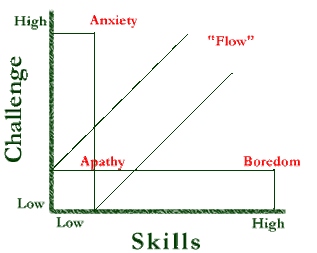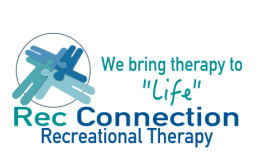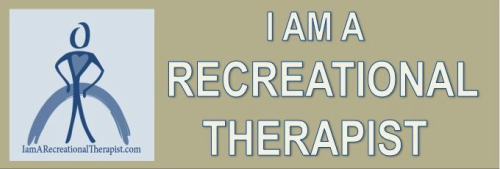Recreational Therapy, defined
Recreation therapy, also known as therapeutic recreation, is a systematic process that utilizes recreation and other activity-based interventions based upon the assessed needs of individuals with illnesses and/or disabling conditions. The purpose of the RT process is to improve or maintain physical, cognitive, social, emotional and spiritual functioning in order to facilitate full participation in life. -ATRA
What Should You Expect from Your Recreational Therapist?
- To assess your needs by collecting information about you in order to plan your program
- To set short term and long term goals, goals for the program will be set based on your individual needs
- Develop and implement a program based on your interests and needs.
- Evaluate your goals and activities will by revisiting periodically and adjust them based on your progress.
The Roles of a Recreational Therapist
Your recreational therapist can take any or all of these of these roles depending on your needs:
- As a clinical recreational therapist, where programs will be focused on improving your physical, cognitive, or emotional well being.
- As a leisure educator, focused on assisting you with learning new leisure skills or getting to know the leisure resources available in your community
- As a recreation leader where you can participate in sessions that provide therapeutic benefits, and keep you active and socially engaged.
Getting into the Flow of Things

One of the goals of Recreation Connection is to help people find Flow during their leisure activities.
According to Dr.Csikszentmihalyi, when a person is faced with a challenge that is too hard for the skills they have they will get anxiety. On the other hand, if a person is faced with a challenge that is too simple for their skill levels they will get bored. When a person's skill levels meet the challenge perfectly, a person will find themselves in Flow.
In flow, one's emotions are not just contained and channeled, but positive, energized, and aligned with the task at hand. The person often feels a sense of "losing sense of time" and "forgetting about everything except the activity at hand". The closer a person is to finding Flow in their activities, the more effective that activity will be.
According to Dr.Csikszentmihalyi, when a person is faced with a challenge that is too hard for the skills they have they will get anxiety. On the other hand, if a person is faced with a challenge that is too simple for their skill levels they will get bored. When a person's skill levels meet the challenge perfectly, a person will find themselves in Flow.
In flow, one's emotions are not just contained and channeled, but positive, energized, and aligned with the task at hand. The person often feels a sense of "losing sense of time" and "forgetting about everything except the activity at hand". The closer a person is to finding Flow in their activities, the more effective that activity will be.
|
For additional information on Therapeutic recreation visit IAmARecreationalTherapist.com by clicking on the icon or you can view a short video by clicking below...
|



